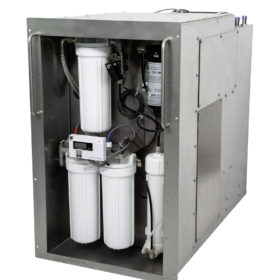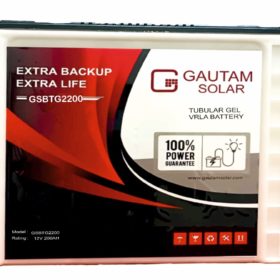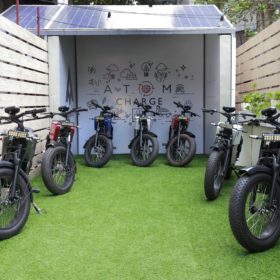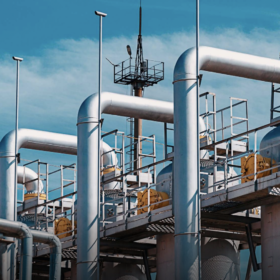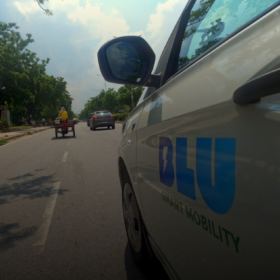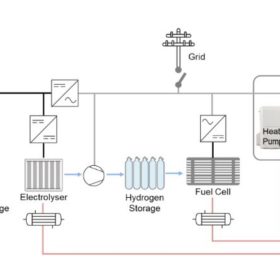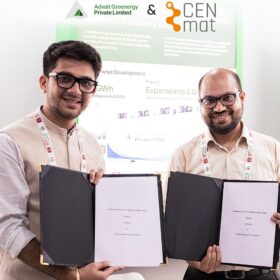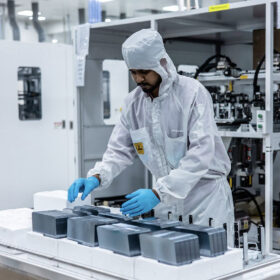Japan’s Mitsui to buy 49% in ReNew Power’s round-the-clock project
Japanese investor Mitsui has signed the agreement to raise a 49% stake in ReNew Power’s 1.3GW hybrid renewable energy project supplemented with up to 100MWh of battery storage. The project will supply 400MW of round-the-clock power to the Solar Energy Corporation of India (SECI) under a 25-year power purchase agreement.
Modular electrolyzer for residential, commercial applications
Germany’s Ostermeier H2ydrogen Solutions has developed an electrolyzer that works with tap water, with bottles to store hydrogen and a fuel cell or a Wankel engine to produce electricity. The system has a capacity ranging from 1kW to 100 kW, which corresponds to hydrogen production of 0.2-20 Nm3/h.
Gautam Solar releases gel battery solution for solar storage
India’s Gautam Solar says its gel batteries provide a safer, cost-effective, and long-lasting alternative for the energy storage space.
Solar the energy workhorse in latest gloomy IPCC verdict
Photovoltaics can wipe out 4.25 billion tons of carbon emissions every year this decade, according to the UN Intergovernmental Panel on Climate Change. Even so, the actions announced so far remain way short of what is needed, with capital flows to fossil fuels still greater than the cash directed toward combating climate change.
ATUM Charge deploys 250 solar-powered EV charging stations across India
These self-sustaining universal electric vehicle charging stations are powered by Visaka’s ATUM solar roof.
IndianOil, L&T and ReNew to form green hydrogen development JV
IndianOil, Larsen & Toubro, and ReNew will hold an equal stake in their proposed joint venture to develop, execute and own green hydrogen assets in India. Additionally, IndianOil and Larsen & Toubro will form a JV for the production and sale of electrolyzers.
IREDA to lend INR 268 crore to BluSmart Mobility
The integrated EV ride-hailing and charging company will use the amount to purchase 3,000 all-electric cars.
Over ten lakh electric vehicles on Indian roads
India has 10,76,420 registered electric vehicles, with 1,742 public charging stations operational as of March 21, 2022.
Fire incidents highlight ‘burning’ issues in India’s EV ecosystem
Although we may have just about commenced our run in the electric vehicle (EV) race, it is critical that we jump-start the pace of adoption by enhancing the overall perception of EVs from a safety and longevity standpoint.
Designs for solar+storage+hydrogen systems in buildings
German scientists have tried to determine whether a PV system linked to a small electrolyzer, a fuel cell, and lithium-ion batteries could fully power a grid-connected household. Their new proposal consists of a 6.8kW PV array, a 5kW electrolyzer, a 1.24kW fuel cell system, and battery storage.

